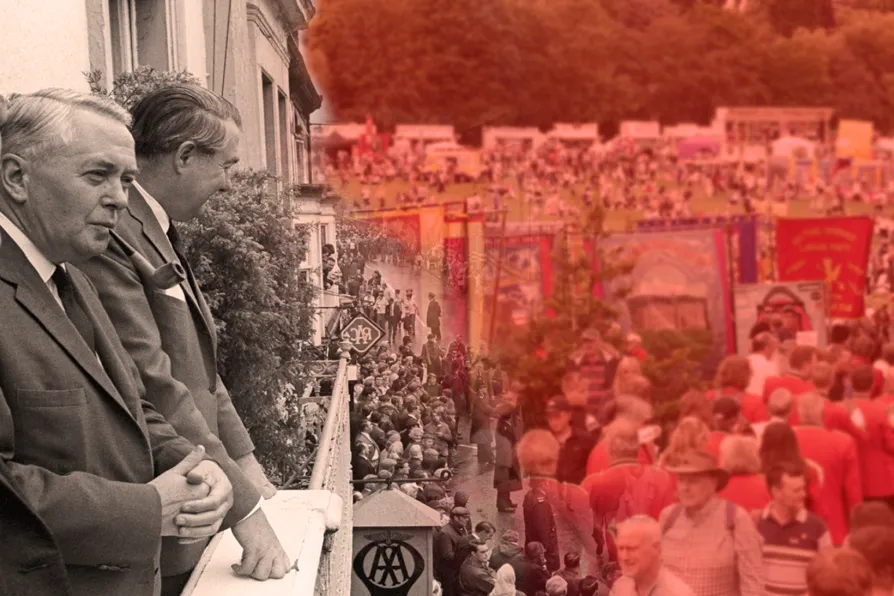Channel 4’s Dirty Business shows why private companies cannot be trusted with vital services like water, says PAUL DONOVAN

 Chancellor James Callaghan, then PM Harold Wilson and assistant general secretary
of the TUC Vic Feather watch the Durham Miners’ Gala in 1967
Chancellor James Callaghan, then PM Harold Wilson and assistant general secretary
of the TUC Vic Feather watch the Durham Miners’ Gala in 1967
IT’S COMPLICATED. All relationships are. But the partnership for life between the trade unions — the working-class organisations that created the Labour Party — and the party itself has entered a new stage in which some, on both left and right, are questioning whether that relationship in its present form can survive.
On the right of the party — in Parliament and in the party apparatus — there is a clear sense that the powerful presence of trade unions in decision-making, candidate selection and policy formation now represents a threat to its 21st century project to decouple Labour from a politically engaged working-class movement and permanently occupy the centre ground.
Over a century, with occasional interruptions, Labour’s leaders enjoyed a comfortable relationship with right-wing union leaders who were content to allow the parliamentary party to determine policies.

Starmer sabotaged Labour with his second referendum campaign, mobilising a liberal backlash that sincerely felt progressive ideals were at stake — but the EU was then and is now an entity Britain should have nothing to do with, explains NICK WRIGHT

In the run-up to the Communist Party congress in November ROB GRIFFITHS outlines a few ideas regarding its participation in the elections of May 2026

From Gaza complicity to welfare cuts chaos, Starmer’s baggage accumulates, and voters will indeed find ‘somewhere else’ to go — to the Greens, nationalists, Lib Dems, Reform UK or a new, working-class left party, writes NICK WRIGHT











